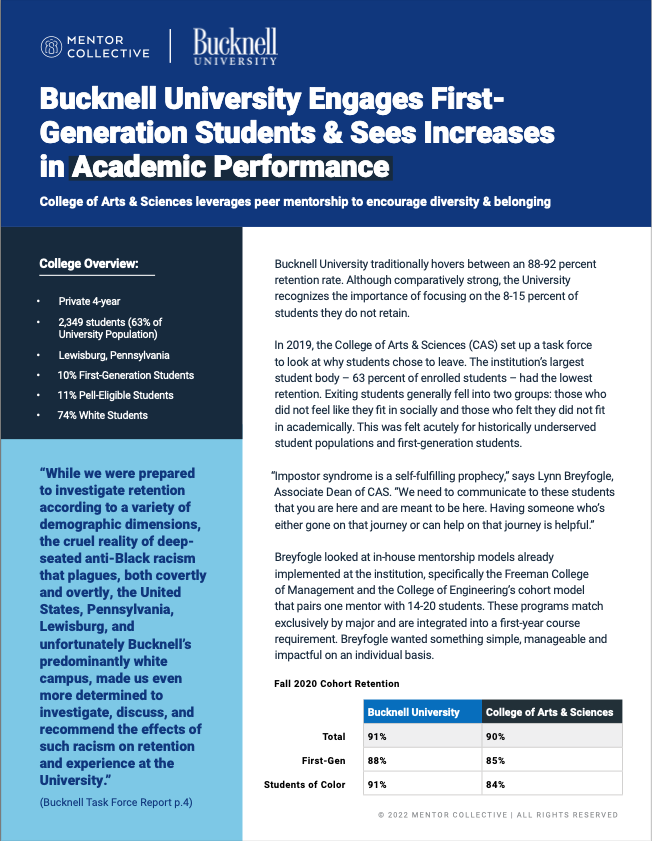[Case Study]
Bucknell University Engages First-Generation Students & Sees Increases in Academic Performance
In 2019, the Bucknell University's College of Arts & Sciences (CAS) set up a task force to look at why students chose to leave the university. The institution’s largest student body – 63 percent of enrolled students – had the lowest retention. Exiting students generally fell into two groups: those who did not feel like they fit in socially and those who felt they did not fit in academically. This was felt acutely for historically underserved student populations and first-generation students. With Mentor Collective, Bucknell established a peer support network with mentorship and had a positive impact on first-generation student outcomes.

If we only thought about our retention and graduation rates today, we would be neglecting the diverse population of students in need of our help. We are not historically built for those students, and some of the things we’re doing are the just right things to do. With our current tuition, even if we retain three students, we’ve paid for the program. This is a long-run strategy that will benefit the institution as the general student population becomes more diverse. If we’re not moving now, we’ll never get there."
Dr. Karl Voss, Dean of the CAS, Bucknell University